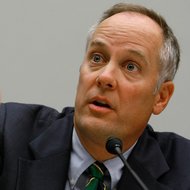WASHINGTON — The Federal Housing Administration, a government agency that insures mortgages, is on the verge of requiring taxpayer financing for the first time in its eight-decade history.
An independent audit to be released on Friday projects that the administration will not have the cash reserves to pay all of its obligations, with the total shortfall amounting to about $16.3 billion.
“This does not mean F.H.A. has insufficient cash to pay insurance claims, a current operating deficit or will need to immediately draw funds from the Treasury,” the report stressed.
But it does make a taxpayer bailout likely. Reserves at the administration, which insures more than $1 trillion in mortgages, fell to below $3 billion last year. And the report cites a number of weaknesses on the agency’s books.
“We will continue to take aggressive steps to protect F.H.A.’s financial health while ensuring that F.H.A. continues to perform its historic role of providing access to homeownership for underserved communities and supporting the housing market during tough economic times,” said Carol J. Galante, its acting commissioner, in a statement.
The F.H.A. “has weathered the storm of the recent economic and housing crisis by taking the most aggressive and sweeping actions in its history to reform risk management, credit policy, lender enforcement and consumer protections,” Shaun Donovan, the secretary of housing and urban development, said in a statement.
Politicians in Washington, particularly Republicans, have voiced concerns that the agency could become a drain on the taxpayer, much like Fannie Mae and Freddie Mac. Those two mortgage finance giants have not required additional taxpayer funding in recent quarters, as the housing market has stabilized. But they have nevertheless received about $190 billion in federal financing in the last four years.
An agency release cites three reasons for its deteriorating financial position. Home prices have not risen as quickly as the administration’s actuaries expected. Low interest rates have weakened its books. The agency’s independent actuary used a “refined methodology this year to more precisely predict” its losses.
More broadly, the agency is still struggling from the burst of the real estate bubble. By many measures, housing prices have only recently started to stabilize and increase. The rate of foreclosures remains high.
The agency’s books are improving, a release said. But it noted that its portfolio of loans insured between 2007 and 2009 — after the housing bubble started to collapse — were placing a “significant” strain on its finances. The independent actuaries project more than $70 billion in losses on those loans.
Article source: http://www.nytimes.com/2012/11/16/business/fha-short-billions-may-need-rescue-by-taxpayers.html?partner=rss&emc=rss

